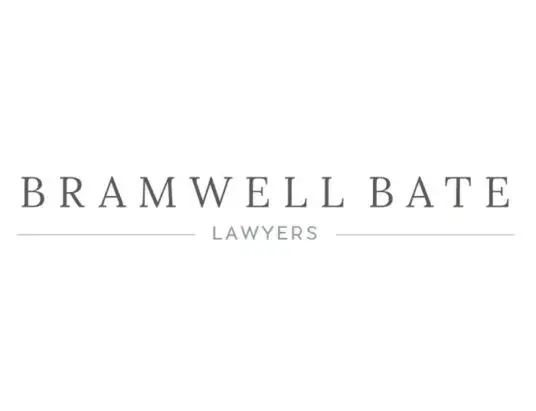Artificial Intelligence (AI) has emerged as a transformative force in the business world, offering newfound opportunities for efficiency, innovation, and competitive advantage. However, along with these opportunities come legal implications and risks that must be carefully navigated.
AI algorithms can process vast amounts of data quickly and accurately, helping businesses identify trends, predict future outcomes, and make informed choices. This can lead to a more transparent and defensible decision-making processes.
AI technologies can automate routine tasks and processes, reducing the need for human labour and, consequently, labour-related costs. This cost reduction can translate into higher profits and increased competitiveness.
However, it’s crucial to consider the legal implications of workforce changes, such as potential labour disputes and employment law compliance. How often have you been on a webpage when a virtual assistant asks if there is anything they can help with? AI-powered chatbots and virtual assistants can provide round-the-clock customer support, enhancing the overall customer experience.
Moreover, AI-driven personalization can tailor products and services to individual customer preferences, boosting customer satisfaction and loyalty. Before releasing this functionality on your website, it is crucial to ensure the privacy and security of customer data remains paramount. Legal frameworks, such as the General Data Protection Regulation (GDPR) in Europe, require strict adherence to data protection principles. Failure to comply with these regulations can lead to significant fines and reputational damage.
The update to the Privacy Act in 2020 brought NZ law slightly closer to the European framework, and there are now 13 privacy principals to comply with. AI can help businesses identify and protect their intellectual property more effectively.
Machine learning algorithms can monitor the internet for potential trademark infringements, patent violations and can assist with copyright management and content protection. While AI can help protect intellectual property, it can also pose challenges related to patent eligibility. Courts around the world are still grappling with the question of whether AI-generated inventions can be patented, and these legal uncertainties can impact businesses’ innovation strategies.
For the benefit of many local business in the agricultural and horticultural sector, AI-powered predictive maintenance systems can monitor machinery and equipment in real-time, anticipating maintenance needs and preventing costly breakdowns. While this can result in substantial cost savings, businesses must consider health and safety compliance in the event of a malfunction or failure. AI applications in regulated industries must adhere to strict requirements.
Ensuring compliance with health and safety regulations or consumer protection laws, is essential to avoid legal penalties and reputational damage. AI algorithms are only as good as the data they are trained on, and biased data can result in discriminatory outcomes. Businesses that deploy AI systems must be vigilant in identifying and mitigating bias particularly in areas like hiring, lending, and criminal justice.
There have been many instances of AI bias around the globe – Amazon’s recruitment algorithm reflected a male dominant workforce; Twitter’s algorithm favoured white faces over all others when cropping pictures and closer to home the NZ Police decided to stop the use of their road policing algorithm after being warned against the system by an expert panel.
Determining liability in cases involving AI can be challenging. If an AI makes a faulty decision that causes harm, who is responsible—the developer, the user, or the AI itself? As is the case with many innovations, laws and regulations are often made reactively. AI presents a world of opportunities for businesses however, these opportunities are accompanied by legal risks and challenges that cannot be ignored.
To harness the full potential of AI while mitigating legal risks, businesses must adopt a proactive approach, and in this respect legal expertise is indispensable. Collaborations between legal professionals and AI experts are essential to navigate the complex legal terrain and unlock the full potential of AI while ensuring ethical and legal compliance.
As AI continues to evolve, businesses that embrace it responsibly and proactively to address legal considerations will be better positioned to thrive in the digital age, reaping the rewards of innovation while safeguarding against potential legal pitfalls.
 About Amy Cowan – Amy has broad experience in property law, with a focus on subdivisions, property developments and commercial and residential conveyancing. She is a Conveyancing Practitioner and Registered Legal Executive and has extensive experience advising on Lending and Regulated Financial Services, and has provided high level advice to lenders, borrowers, and guarantors in all types of commercial and private transactions. Amy also serves as an Executive Board Member for the NZ Society of Conveyancers, a member of the Standards Committee, and an associate member of the NZ Law Society. Ph: 06 872 8210
About Amy Cowan – Amy has broad experience in property law, with a focus on subdivisions, property developments and commercial and residential conveyancing. She is a Conveyancing Practitioner and Registered Legal Executive and has extensive experience advising on Lending and Regulated Financial Services, and has provided high level advice to lenders, borrowers, and guarantors in all types of commercial and private transactions. Amy also serves as an Executive Board Member for the NZ Society of Conveyancers, a member of the Standards Committee, and an associate member of the NZ Law Society. Ph: 06 872 8210
Email: amy@bramwellbate.co.nz



